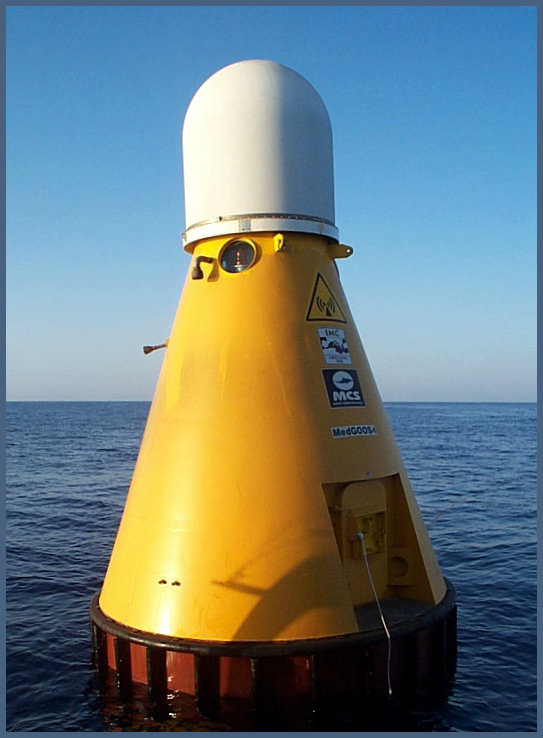Objectives of MedGOOS The scientific and technological
base achieved in Europe, the enlargement process in the
European Union, and the Mediterranean policy of the Union,
are all favourable conditions for a concerted basin-wide
integrated effort to establish a strong, common research
infrastructure for the implementation of the Ocean Observing
System in the Mediterranean basin. The key elements contemplated
by the MedGOOS Strategy to achieve this goal are the:
1. identification of regional priorities for operational ocean forecasting and marine meteorology;
2. ascertaining the geographic coverage of observations;
3. integration of observations;
4. co-operation at all levels (between agencies responsible for tourism, maritime transport, environmental management, coastal defences and flood prevention, search and rescue, fisheries, harbours, offshore oil and gas, research, and marine technology);
5. raising of awareness on the benefits of operational oceanography for the region;
6. capacity building to bridge differences in infrastructural and human resources between countries;
7. broadening of the MedGOOS association
8. RTD projects funded by the EU
9. EU funded Concerted Actions, Thematic Network projects such as the current MAMA project, large integrated projects and other instruments such as the mobility of young researchers. |
 |
MedGOOS Buoy off the Gulf of Oristano |
|
The short term
objectives of the MedGOOS are mainly to:
- build the basin-wide network
for ocean monitoring and forecasting, linking all the
Mediterranean countries, broadening and strengthening
the existing network of national institutions;
- identify the gaps in the
ocean and coastal monitoring systems in the region and
in the capability to measure, model and forecast the
ecosystem, taking stock of current RTD projects such
as the Mediterranean Forecasting System Pilot Project
(MFSPP), and of the EuroGOOS, MedGOOS and Africa GOOS
activities;
- build capacities for expertise
in the setting up and running of observing platforms,
in managing marine data, in modelling and forecasting
the ecosystem;
- design the initial observing
and forecasting system from the basin scale down to
the coastal zone, inter-comparing experiences and
standardising practices towards the co-ordinated upgrading
of the ocean observing and forecasting capabilities
in all the Mediterranean countries;
- raise awareness on the benefits
of ocean forecasting at local, regional and global scales,
involving stakeholders, and through demonstration projects
and dissemination of products.
The expected long term goals are to:
- enhance the coastal monitoring
and forecasting capabilities in all Mediterranean
countries;
- establish contacts and collaborative
efforts among all the Mediterranean countries in
favour of the development of a Mediterranean operational
forecasting system at regional and coastal scales;
- Support the setting up of a platform for the Mediterranean data and information network for operational
interagency data exchange, with the sharing of operational
common products including the automated production of
added value oceanographic information, and with the
delivery of user-oriented products in an operational
and interactive mode;
- promote awareness of policy makers
and the marine authorities on the opportunities, benefits
and need of operational ocean forecasting;
- set up the transnational Mediterranean
network of researchers and users for the implementation
of operational ocean forecasting.